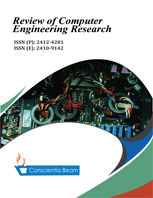Machine Learning and Deep Learning Based Phishing Websites Detection: The Current Gaps and Next Directions
DOI:
https://doi.org/10.18488/76.v9i1.2983Abstract
There are many phishing websites detection techniques in literature, namely white-listing, black-listing, visual-similarity, heuristic-based, and others. However, detecting zero-hour or newly designed phishing website attacks is an inherent property of machine learning and deep learning techniques. By considering a promising solution of machine learning and deep learning techniques, researchers have made a great deal of effort to tackle the this problem, which persists due to attackers constantly devising novel strategies to exploit vulnerability or gaps in existing anti-phishing measures. In this study, an extensive effort has been made to rigorously review recent studies focusing on Machine Learning and Deep Learning Based Phishing Websites Detection to excavate the root cause of the aforementioned problems and offer suitable solutions. The study followed the significant criterion to search, download, and screen relevant studies, then to evaluate criterion-based selected studies. The findings show that significant research gaps are available in the rigorously reviewed studies. These gaps are mainly related to imbalanced dataset usage, improper selection of dataset source(s), the unjustified reason for using specific train-test dataset split ratio, scientific disputes on website features inclusion and exclusion, lack of universal consensus on phishing website lifespans and on what is defining a small dataset size, and run-time analysis issues. The study clearly presented a summary of the comparative analysis performed on each reviewed research work so that future researchers could use it as a structured guideline to develop a novel solution for anti-phishing website attacks.





